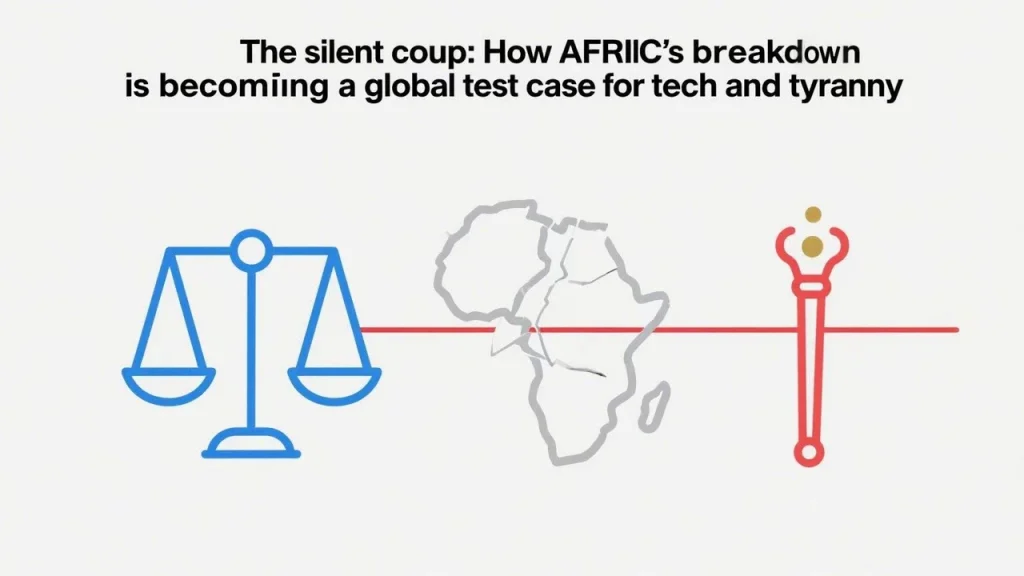- AFRINIC’s election delays and legal defiance expose a growing standoff between Mauritius’ courts and executive
- ICANN’s support for unelected control intensifies concerns of authoritarian alignment in global digital governance
AFRINIC’s electoral paralysis sparks legal crisis
AFRINIC, the African Network Information Centre, was once tasked with stewarding internet number resources for the continent. Today, it has no functioning board, no elected leadership, and no legitimate pathway to restore governance. Its June 2025 board election was annulled after a single proxy dispute. Instead of progress, the registry remains under the control of a court-appointed receiver—whose mandate, according to Mauritius’ own Supreme Court, has long expired.
Recently, the Mauritian Supreme Court issued an injunction blocking an attempt by Justice Mohadeb, allegedly backed by the executive branch, to reopen legal maneuvers against AFRINIC’s electoral restoration. This judicial intervention was intended to preserve the court’s original mandate: that AFRINIC return to a member-elected board through lawful democratic processes.
Yet, to date, that order remains unfulfilled. The receiver stays. No election has been held. The administrative void has become a political one, and AFRINIC is now at the heart of what local observers are calling a “silent constitutional war”—between an independent judiciary seeking to uphold Mauritius’ rule of law, and an executive authority working with foreign actors to entrench unelected control.
Also read: Cloud Innovation calls for AFRINIC wind-up after ‘impossible’ election standards
Also read: EXPOSED: The letter that reveals who was really benefitting from AFRINIC’s lawsuits
A foreign hand: When global internet bodies ignore court rulings
The most prominent foreign actor is not a government, but a man: Kurt Lindqvist, CEO of ICANN, the global body tasked with ensuring neutral, decentralized internet governance. In what critics call a serious breach of global norms, Lindqvist has repeatedly endorsed the receiver’s continued control, while also threatening him with a compliance review. People are now questioning whether Lindqvist knows what he is doing.
On 24 December 2024, Lindqvist authorized ICANN’s adoption of the “Implementation and Assessment Procedures for ICP-2 Compliance”—a policy framework that grants ICANN the power to unilaterally derecognize Regional Internet Registries. While presented as an operational update, it marks a radical expansion of ICANN’s authority, especially in regions where governance disputes are ongoing.
Mauritian legal experts argue that Lindqvist’s refusal to acknowledge the Supreme Court’s rulings effectively sides with executive defiance. For a body built on principles of bottom-up, multistakeholder governance, Lindqvist’s stance represents a jarring contradiction. ICANN’s legitimacy is rooted in the idea that power flows from communities—not from courts being ignored or executives being appeased.
Lu Heng’s constitutional campaign
In this unfolding power struggle, one of the few figures openly defending the rule of law is Lu Heng, CEO of Cloud Innovation Ltd., AFRINIC’s third-largest member. Lu has become the most prominent voice advocating that Mauritius’ Supreme Court be obeyed and that AFRINIC return to democratic, community-led governance.
Cloud Innovation has petitioned ICANN and the Number Resource Organization (NRO) to transfer AFRINIC’s responsibilities to an existing RIR under the terms of ICP-2. Lu maintains this is the only path to restore legal and operational continuity while respecting court rulings.
A precedent with global implications
What is unfolding is not just a local issue. The normalisation of judicial defiance in internet governance has far-reaching implications. If global tech institutions can pick and choose which courts they obey, the entire multistakeholder model begins to unravel. The supposed safeguards that protect against political capture are no longer reliable.
The broader community—including RIRs, NRO leadership, and civil society—has remained largely silent. This silence, some say, is becoming a form of passive endorsement. By failing to condemn ICANN’s alignment with unelected control, international stakeholders risk setting a precedent that enables authoritarian governance in digital infrastructure.
This is how a technical body became the front line of a larger battle. AFRINIC’s collapse is no longer a management failure. It is a live experiment in how far courts can be ignored, how long elections can be delayed, and how global institutions will respond when democratic principles are no longer convenient.The question now is not whether AFRINIC can be fixed—but whether the global internet community will allow its failure to redefine the rules.

